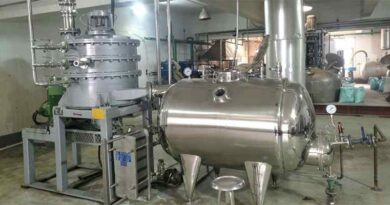Banana Productivity to Fall in India, Brazil Due to Climate Change

Banana, which is recognized for its high nutritional and calorific value for the rich and poor alike, is facing the dangers of erratic weather patterns. Climate change that brings rising temperatures, intermittence of rain and the abnormal climatic episode is threatening this humble fruit.
For the past 60 years, global warming (now global heating) has helped to increase the banana yields by 0.024 tonnes per hectare every year, which went high as 1.37 tonnes per hectare in 27 banana-growing countries since the 1960s. But the conditions which were once a boon for Banana is reversing and has led to a drop in the yields. The decrease is now projected to reach between 0.59-0.19 tonnes per hectare by 2050. This was revealed by UK based Exeter University’s latest study, which was published in Nature Climate Change journal.
In a new study, led by Dr Dan Bebber from the University of Exeter, scientists have studied both the recent and future impact of climate change on the world’s leading banana producers and exporters.
The study notes that India, which is the largest grower and consumer of bananas along with 9 other countries like Brazil — are predicted to see a significant decline in crop yields. Others include Colombia, Costa Rica, Guatemala, Panama, and the Philippines, all of which are major exporters.
While it also notes that some countries — including Ecuador (the largest exporter) and Honduras, as well as a number of African countries — may see an overall benefit in crop yields.
Dr Bebber, a Senior Lecturer in Biosciences at the University of Exeter said in a statement: “We’re very concerned about the impact of diseases like Fusarium Wilt on bananas, but the impacts of climate change have been largely ignored. There will be winners and losers in the coming years, and our study may stimulate vulnerable countries to prepare through investment in technologies like irrigation.”
The researchers assessed the climate sensitivity of the global dessert banana productivity or yield through sophisticated modeling techniques. Dr. Bebber added: “It is imperative that we invest in preparing tropical agriculture for future climate change.”
On the other hand, Dr. Varun Varma, a research fellow at the University of Exeter and an author of the study suggests: “An open exchange of ideas is going to be critical going forward. We believe practical solutions already exist, but these are scattered across banana producing countries. This knowledge exchange needs to start now to counteract predicted yield losses due to climate change.”




